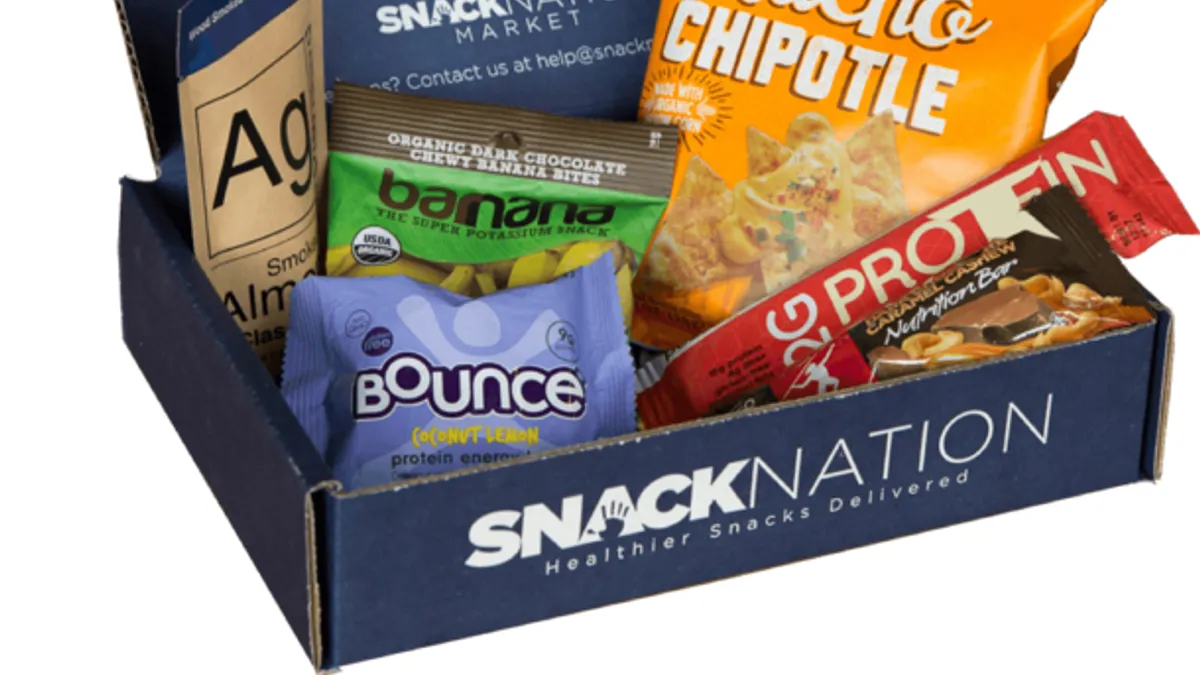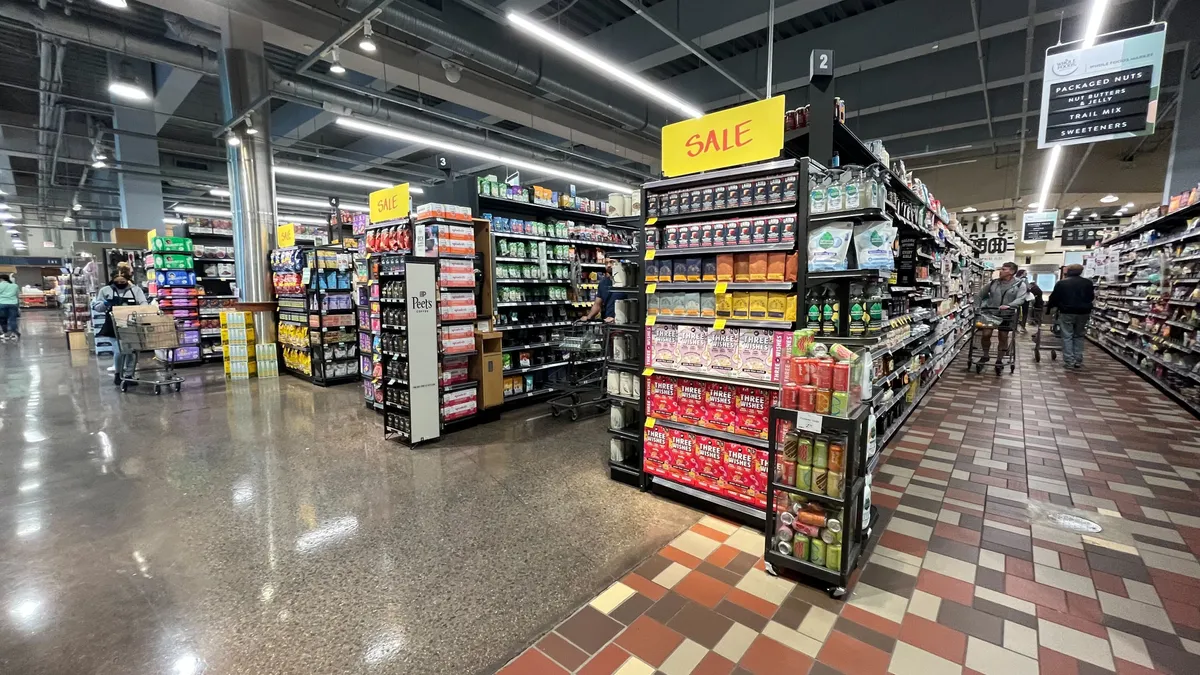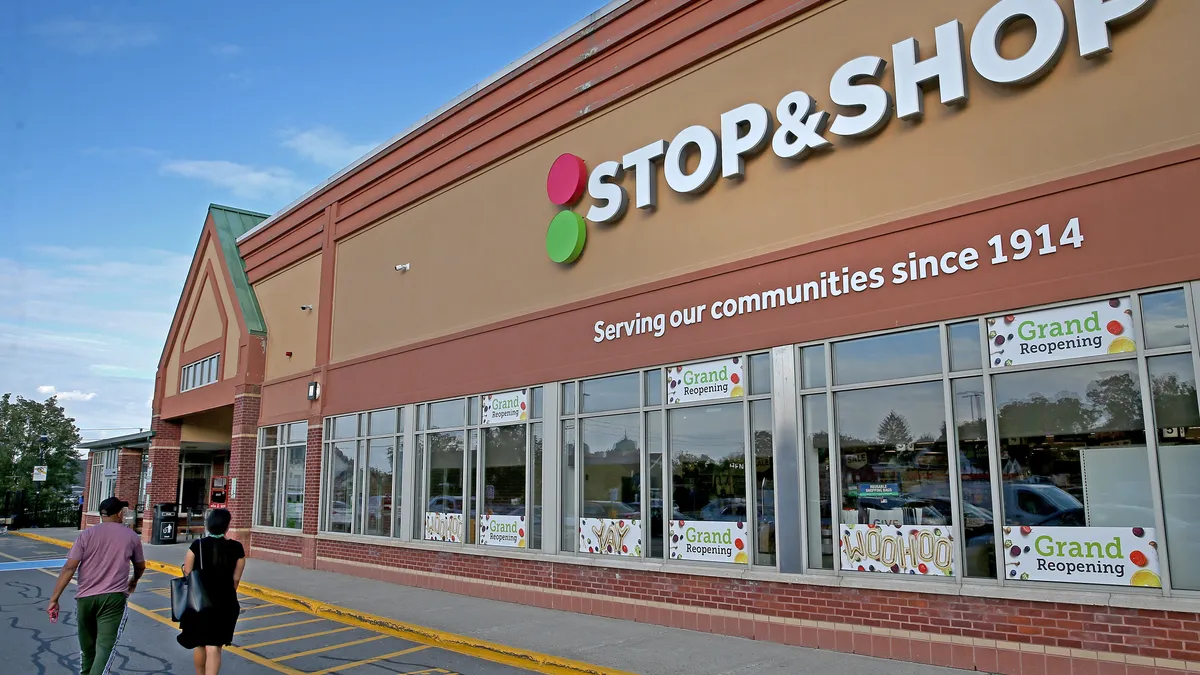Dive Brief:
- Private label products are claiming a growing share of the snacking market, according to Baking Business, citing research from IRI and Nielsen. Store brands now account for 10% of sales in the category, according to IRI — an increase of 4.8% from last year.
- IRI estimates the overall snack market to be worth $42.5 billion, with sales up 3.4% over the past year. In a presentation at last month’s Sweets & Snacks Expo, IRI executive vice president Sally Lyons-Wyatt said consumer preferences are shifting from low-cost, mainstream snacks to premium and organic ones.
- Millennials, the in-demand demographic that has traditionally distrusted private label products, are now driving sales and innovation in private label snacking, according to IRI and Nielsen.
Dive Insight:
Like the bags of sweet potato chips, chocolate-covered granola bars and other treats that are driving growth, the snack market has become irresistible for retailers. Sales are estimated to be $42.5 billion a year, with shoppers snacking four to five times a day, according to Datassential.
To capitalize on this opportunity, store brands have evolved beyond traditional snacking fare like bags of pretzels and yogurt cups. Lines like Kroger’s Simple Truth and Target’s Archer Farms now offer snacks that feature healthy, premium and unique ingredients, delivered in playful ways. Dark chocolate espresso trail mix, yogurt-dipped almonds, sesame sticks and veggie chips are just a few of the selections that are redefining store brand snacking.
Retailers are building out their capacity in the category. H-E-B is in the process of building a second snack manufacturing plant, while Dollar General just rolled out a better-for-you snack brand, Good & Smart. Albertsons plans to double it private label launches this year, including numerous snack options.
Amazon, already a major snack seller, stands to become a store brand powerhouse through its Wickedly Prime and Whole Foods’ 365 Everyday brands. According to Profitero, Amazon sold $518 worth of snacks over the past year, with category sales climbing 22% over the past six months.
As retailers market and expand their private label snack collections, they need to consider how they’re appealing to millennial eaters. The demographic is indulging in everything from meat snacks to candy to granola bars around the clock. A recent study found that millions of millennials intentionally miss meals in order to snack. Millennials and Gen Z consumers are expected to keep up their snacking habits as they age, with per capita snacking at meal times is expected to rise by 12%.
Retailers also need to keep their eye on national brands, which are also digging further into snacking. Hershey bought Amplify Snacks back in December as part of its quest to become a snacking powerhouse. Campbell Soup, Nestle and Mondelez have also made key acquisitions in the space. Earlier this year, PepsiCo’s Naked brand established a new fruit, nut and veggie bar line.
The snacking market is quickly evolving, making it important for retailers to stay on top of the latest trends. Knowing what the latest “it” item is can be difficult. One thing grocers can be sure of, though: Consumers’ appetite for snacks is strong, and doesn’t seem likely to wane anytime soon.









